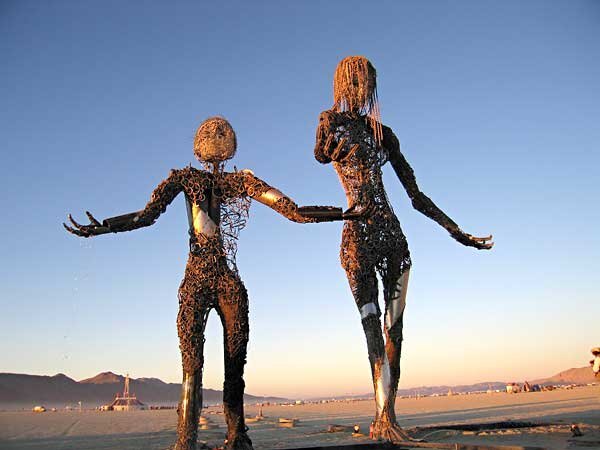A plea for the body
Obesity, diabetes, heart disease, depression, neurological disorders; there’s a lot of hand-wringing going on these days about the decline of health in America. Experts have been lining up, describing the problem in all its shocking detail, offering a range of familiar prescriptions that include exercise, better nutrition, stress education and all the rest. But maybe we’ve got it wrong. Maybe health, at least the way most of us think of it, is not the real issue.
The way I see it, the real tragedy runs deeper. It’s about the demise of our most precious relationships; with our bodies, with the natural world and with each other. What we are witnessing is not just an epidemic of lifestyle disease, but an epidemic of physical disengagement from the world. The real problem is not disease per se, but the disembodied way of living that has led to disease.
Throughout the entire history of life on earth (a period of some 3 billion years), organisms have experienced and learned about the world through direct participation of their bodies and their senses. And, for the vast majority of human history, we have experienced and learned about the world through direct participation of our bodies. Intimate physical contact is the norm, the biological status quo.
But today we are engineering a radical change in this primal relationship. Instead of using our bodies to learn the world, we’re probing it at arm’s length. We’re disengaging our senses from an ancient, proven relationship. Instead of using our bodies to experience and learn about the physical and social world, we now use devices. In effect, we are bypassing the body, leapfrogging over ancient physiological and sensory systems of exquisite structure and function. This is a profoundly radical and dangerous act.
Just as cars and chairs cripple our bodies through muscular disuse and atrophy, so too do electronic devices cripple our senses. So-called “smart phones” act as prosthetic devices for the healthy nervous system, leading to sensory atrophy. Just as muscles degenerate with disuse, so too do our primal powers of observation, sight, hearing and touch. Only a couple of generations ago, almost every human on the planet was physically engaged. Today, only athletes, dancers and blue-collar workers experience the world with their bodies. In the space of a few decades, we have gone from being robust, physical animals to disembodied observers, digital voyeurs and data miners.
Designers drive this process by engineering the body out of participation in every dimension of daily life. Indeed, the physical body is increasingly considered to be, not a source of joy and fascination, but a technical problem to be overcome. It simply has too many limitations: it needs food and sleep; it breaks down with injury and disease; it’s prone to memory flaws and cognitive distortions; it needs training. The body is no longer a way to learn the world, nor is it a mystery to be celebrated. Rather, it has become a set of weaknesses to be eliminated.
As our bodies becoming increasingly disengaged from life, they also lose their value and their meaning. We lose our sense of wonder and awe. We lose our motivation to move, to play, to explore the world around us. Seduced by flashing lights, we become addicted to the incredible feats of computing that we can now hold in our hands. But it is our hands themselves that ought to inspire the greatest wonder. There is more computing power in a single human finger than there is in any so-called smart phone. Like magicians fooled by our own illusions, we have fallen in love with our tricks and forgotten where the real wonder lies.
The solution to our public health crisis is not, as we so often assume, to "get people moving," or to "help people lose weight." It’s not even to "get people healthier."
No, the primary challenge is to re-engage our bodies with the world around us, to remind ourselves of the incredible fact of human physicality and the astonishing wonder of even the most simple physical act.
If we fail in this, all the health and fitness tips in the world will make not one whit of difference.
